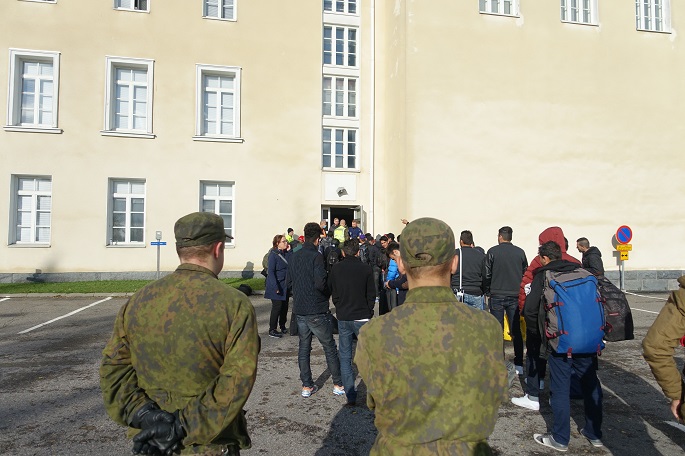Reception centres to assess asylum seekers’ health
Published : 05 Mar 2020, 18:04
Updated : 06 Mar 2020, 09:30
Asylum seekers will be offered the opportunity to receive an initial health examination from reception centre nurses soon after submitting their asylum application, said the Institute for health and welfare (THL) in a press release.
The revised initial health examination is broad in scope and takes into account the asylum seekers’ life situation.
“The initial health examination has a central place within the healthcare provided to asylum seekers. It is used to establish the state of health of the asylum seekers, assess their need for care and direct them towards any further checks or services that they require,” explained THL Senior Researcher Ferdinand Garoff.
There are many factors which affect the health of asylum seekers, whether in their country of origin, during their journey, or once at the reception centre.
The revised initial health examination takes a broad approach to examining the factors affecting asylum seekers’ state of health and to possible special needs which could place them in a vulnerable position. The areas covered in the examination include education, functional capacity, traumatic experiences, mental wellbeing, and oral health.
The content of the initial health examination varies according to age group for preschool children, school-age children and young people, and adults. The operating models for children and young people place special emphasis on factors relating to their family, upbringing and development, and their health habits.
The initial health examination for asylum seekers consists of information content which is recorded in the national code set service and based on structured information recording, meaning that pre-agreed data structures are used to record the patient’s information.
In addition to the reception centres, other actors such as municipalities can also freely make use of the information content published in the code set service when carrying out initial health examinations of asylum seekers and, where relevant, other immigrant groups as well.
A handbook and teaching videos have also been produced to support use of the new operating model.
The development work for the initial health examination has made use of research data and practical experience relating to the health and wellbeing of asylum seekers.
“In addition to the expertise of a range of different professionals, the participation of the nurses working in the reception centres has also been a key condition for the success of the project,” said Finnish Immigration Service Section Head Olli Snellman.
The new operating model was formed in 2017 to 2019 through the national development project ‘Developing the health examination protocol for asylum seekers in Finland’ (TERTTU), implemented through cooperation between THL and the Finnish Immigration Service.
The project was funded by the EU’s Asylum, Migration and Integration Fund. The Finnish Immigration Service and the reception centres are responsible for the implementation and further development of the model.


